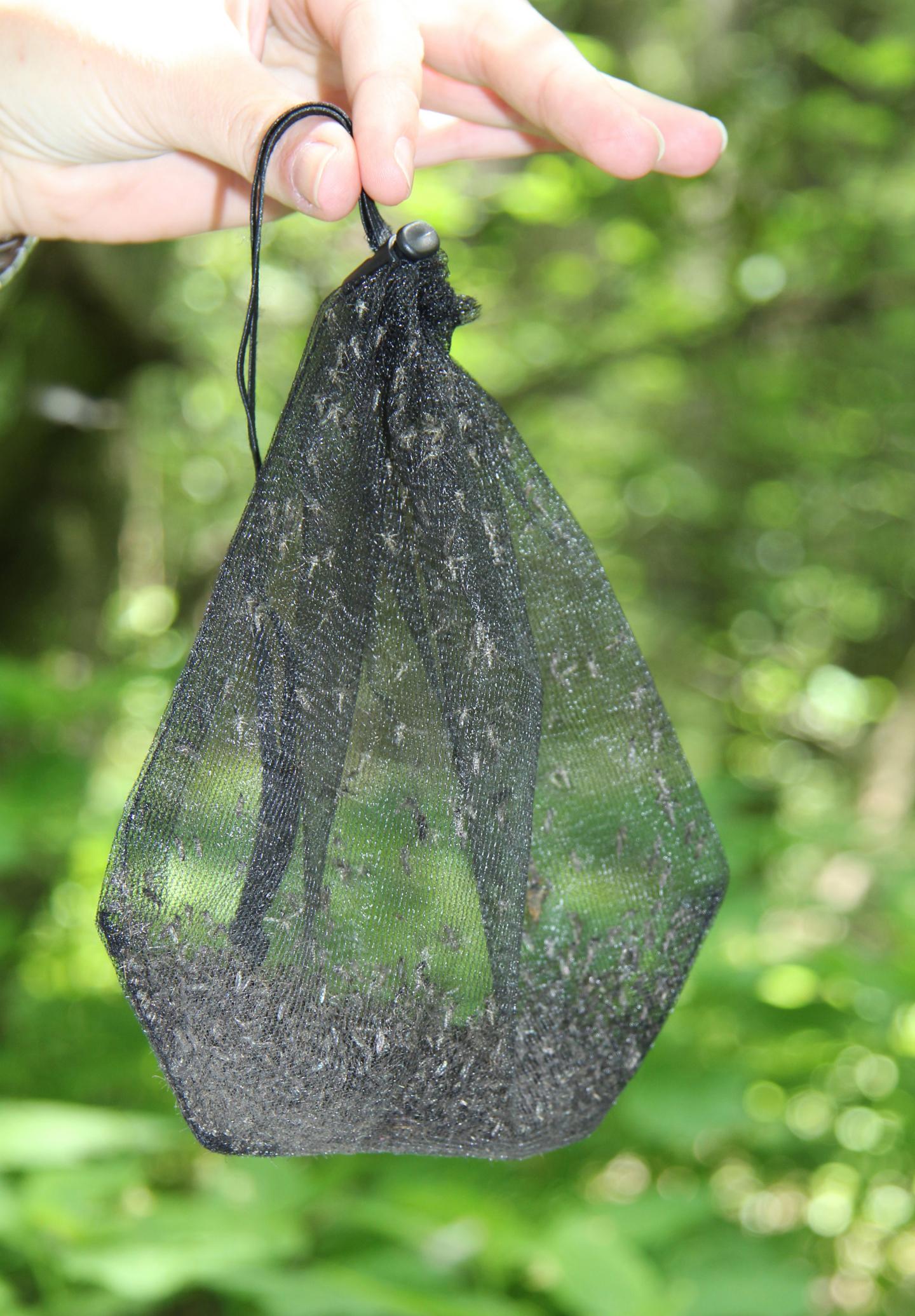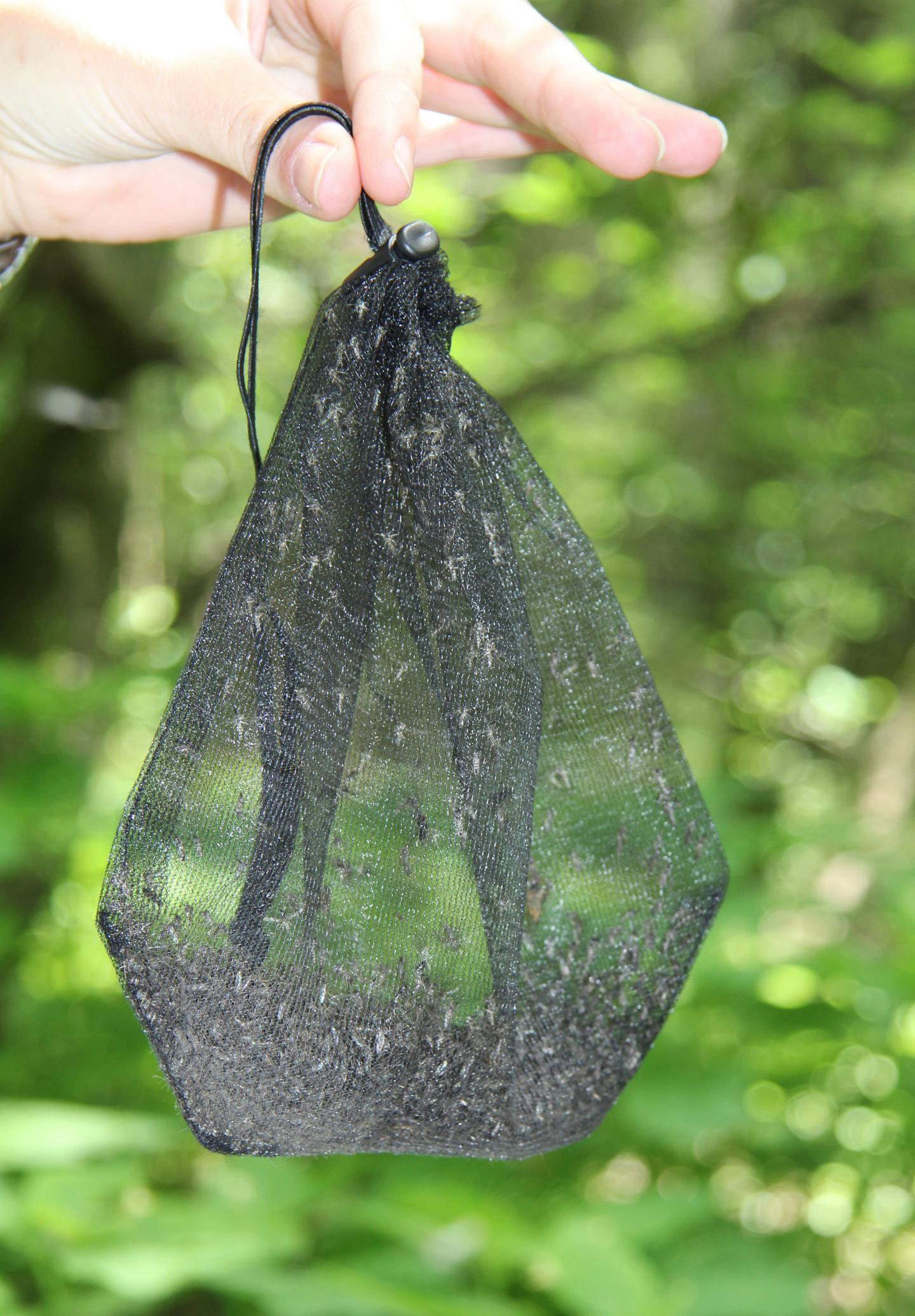
The nematode species Dirofilaria repens and Dirofilaria immitis, previously endemic to Southern and Eastern Europe, are transmitted by mosquitoes primarily to canine hosts. The parasites mature inside the dogs, mate, and are passed on to the next host via mosquito vectors. "These nematodes also affect people and cats. But they are only able to reproduce in dogs, where they produce offspring that are then transmitted to mosquitoes," explains study director Hans-Peter Fuehrer of the Institute of Parasitology at Vetmeduni Vienna.
Skin deep or straight to the heart
In dogs infected with Dirofilaria repens, adult worms gather under the skin to form subcutaneous nodules. Eye infections are also possible, though not as common. Skin nodes are often diagnosed incorrectly and mistaken for tumours. Similar symptoms can occur in rare cases among humans.The heartworm Dirofilaria immitis lodges in the heart or in the pulmonary arteries of infected dogs, making them more difficult to treat. Heartworms can also cause pulmonary infections in humans and may subsequently be mistaken for tumours. The research team's study, which received funding from the Austrian science fund FWF, looked at the consequences of the spread of the two pathogens.
Dirofilaria repens at home, Dirofilaria immitis still just a tourist
Dirofilaria repens is no stranger to Austria. The parasite was detected in mosquitoes in the eastern state of Burgenland as early as 2012. Until then, documented infections could mainly be traced to journeys abroad or dog adoptions. "An infection with the parasite in Austria itself could previously only be suspected, but was never proven," says Fuehrer. Their documentation in endemic mosquitoes brought the first hint that Dirofilaria repens had already become established in the country or that it had been overlooked before. New infections can therefore also be caused directly in Austria. This proof is still missing for the heartworm Dirofilaria immitis. Confirmed infections have so far been blamed on stays abroad. Neighbouring countries such as Slovakia and Hungary, however, have seen heartworms permanently settle in the wake of Dirofilaria repens. "If you consider that heartworms have in most cases so far followed directly on the heels of Dirofilaria repens, it would appear to be only a matter of time until they move from being a tourist to being a permanent guest with us," Fuehrer concludes.
From southern neighbour to permanent guest in the north
In response to climate change, filarial nematodes are likely to spread continuously from Southern and Eastern Europe further north. This development is encouraged above all in countries with a large number of stray dogs or dogs that are constantly kept outdoors. "In Austria, on the other hand, most dogs are frequently kept in enclosed areas, which makes it more difficult for the two nematodes to become established," says Fuehrer. The more frequent documentation of the parasites, however, is a warning for researchers, veterinarians and doctors. For this reason, Fuehrer cites the cooperation in this study with the Medical University of Vienna as an important factor.
Further monitoring and more awareness can slow the spread of the parasites
Countering the parasites' geographic advance requires taking action in time. "Primarily that means continuous, nationwide monitoring of mosquitoes and wild animals," Fuehrer explains. New infections can also be countered through mosquito repellents. But most important is the correct and early diagnosis of cases of Dirofilaria repens and Dirofilaria immitis. "In both veterinary as well as human medicine, Dirofilaria must be taken seriously as a possible pathogen and included in the diagnostic process," Fuehrer recommends. This would guarantee the timely treatment of infected patients through special anti-parasite drugs or through the surgical removal of the skin nodes in the case of Dirofilaria repens.
###
Service:
The article "DIROFILARIA IN HUMANS, DOGS AND VECTORS IN AUSTRIA (1978-2014) – FROM IMPORTED PATHOGENS TO THE ENDEMICITY OF D. REPENS" by Hans-Peter Fuehrer, Herbert Auer, Michael Leschnik, Katja Silbermayr, Georg Duscher and Anja Joachim was published in the journal PLOS Neglected Tropical Diseases. http://dx.doi.org/10.1371/journal.pntd.0004547
http://journals.plos.org/plosntds/article?id=10.1371/journal.pntd.0004547
About the University of Veterinary Medicine, Vienna
The University of Veterinary Medicine, Vienna in Austria is one of the leading academic and research institutions in the field of Veterinary Sciences in Europe. About 1,300 employees and 2,300 students work on the campus in the north of Vienna which also houses five university clinics and various research sites. Outside of Vienna the university operates Teaching and Research Farms. http://www.vetmeduni.ac.at
Scientific contact:
Hans-Peter Fuehrer
Institute of Parasitology
University of Veterinary Medicine Vienna (Vetmeduni Vienna)
T 43-1-25077-2205
[email protected]
Released by:
Georg Mair
Science Communication / Corporate Communications
University of Veterinary Medicine Vienna (Vetmeduni Vienna)
T 43-1-25077-1165
[email protected]
Media Contact
Hans-Peter Fuehrer
[email protected]
43-125-077-2205
http://www.vetmeduni.ac.at





